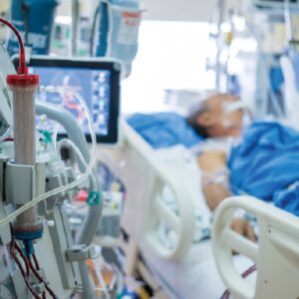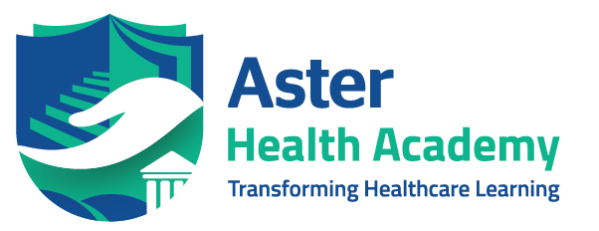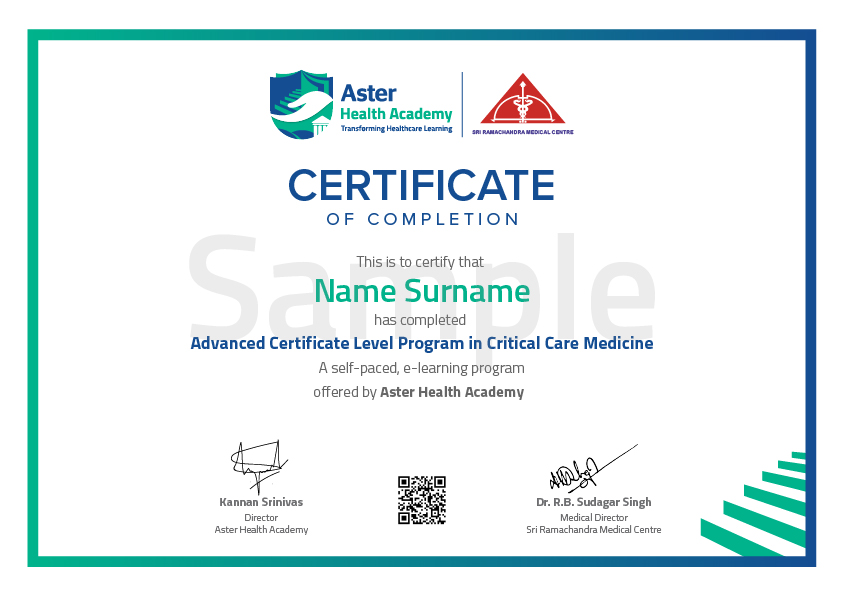
About the course:
Curriculum:
Module 1: Cardiovascular Management of Critically ill Patients
1
Basic Principles of ECG
2
Management of Heart Failure
3
Tachyarrhythmias
4
Bundle Branch Blocks and Fascicular Blocks
5
Diseases of the Pericardium and Myocardium
6
IV Cannulation
7
Central Line Procedures
8
Arterial Cannulation
9
Pulmonary Artery Catheterization
10
Cardiac Emergencies
11
Artificial Cardiac Pacemakers
12
Cardioversion and Defibrillation
13
Arterial Puncture for Blood Gas Analysis
14
Echocardiography
15
Commonly used Drugs
Module 2: Respiratory System
1
Antimicrobial Stewardship
2
Prevention and Control of Nosocomial Pneumonia
3
Antimicrobial therapy
4
Septic Shock
5
Ventilators and Mechanical Ventilation
6
Patient–Ventilator Interaction
7
Advanced Techniques in Mechanical Ventilation
8
Acute Respiratory Distress Syndrome (ARDS)
9
Pulmonary Embolism and Pneumothorax
10
Aspiration Pneumonitis and Pneumonia
11
Drowning and Severe Asthma Exacerbation
12
Chronic Respiratory Diseases in ICU
13
Nosocomial and Community-Acquired Pneumonia
14
Weaning from Mechanical Ventilation and Extubating
15
Thoracocentesis and Chest Tube Insertion
16
Intensive Care Unit Imaging
Module 3: Gastrointestinal System
1
Allergic Reactions
2
Anaphylaxis Management
3
Drug Allergies
4
Introduction to Poisoning
5
Gastrointestinal Decontamination
6
Toxic Alcohols and Antidotes
7
Opioid Poisoning
8
Carbon Monoxide Poisoning
9
Drug Overdose and Toxicities
10
Pesticide and Herbicide Poisoning
11
Heavy Metal Poisoning
12
Gastrointestinal Motility Disorders
Module 4: Nervous System
1
Occupational Exposures
2
Alimentary Prophylaxis
3
Venous Thromboembolism
4
Infection Prevention and Control
5
Pressure Ulcer Prevention
6
Ventilator-Associated Pneumonia (VAP) Prevention
7
Central Line-Associated Bloodstream Infection (CLABSI) Prevention
8
Catheter-Associated Urinary Tract Infection (CAUTI) Prevention
9
Delirium Prevention
10
Fall Prevention
11
Medication Safety
12
Sedation and Delirium Management Protocols
13
Coma
14
Brain Injury Biomarkers
15
Cardiopulmonary Cerebral Resuscitation
16
Brain Death
Module 5: Renal & Genitourinary System
1
Conversations With Families of Critically Ill Patients
2
Basic Ethical Principles in Critical Care
3
Advanced Care Planning and Advance Directives
4
Withholding and Withdrawing Life-Sustaining Treatment
5
Palliative Care in the Intensive Care Unit
6
Quality of Life and Patient-Centered Decision-Making
7
Brain Death
8
Organ Donation and Transplantation
9
Inflammatory Disorders of the Kidneys
10
Acute Kidney Injury
11
Chronic Kidney Disease
12
Renal Replacement Therapy
13
Water Metabolism
14
Fluid and Volume Therapy in the ICU
Module 6: Blood and Circulation
1
Non-invasive Positive-Pressure Ventilation (NIPPV)
2
Haemorrhage and Hypovolemia
3
Colloid
4
Inflammatory Shock Syndromes
5
Introduction to Haematology in Critical Care
6
Anaemia and RBC Transfusion
7
Guidelines for Blood Component Therapy
8
Venous Thromboembolism
9
Anticoagulation in the Intensive Care Unit
10
Monitoring of Coagulation Status
11
Critical Care of the Hematopoietic Stem Cell Transplant Recipient
12
Thrombocytopenia and Platelet Disorders
13
Disseminated Intravascular Coagulation (DIC)
14
Hematologic Malignancies in the ICU
15
Hematologic Complications of Chemotherapy in the ICU
Who this course is for:
Sample Certificate:
FAQ:
+ GST as applicable
Academic Team
Curriculum:
Module 1: Cardiovascular Management of Critically ill Patients
1
Basic Principles of ECG
2
Management of Heart Failure
3
Tachyarrhythmias
4
Bundle Branch Blocks and Fascicular Blocks
5
Diseases of the Pericardium and Myocardium
6
IV Cannulation
7
Central Line Procedures
8
Arterial Cannulation
9
Pulmonary Artery Catheterization
10
Cardiac Emergencies
11
Artificial Cardiac Pacemakers
12
Cardioversion and Defibrillation
13
Arterial Puncture for Blood Gas Analysis
14
Echocardiography
15
Commonly used Drugs
Module 2: Respiratory System
1
Antimicrobial Stewardship
2
Prevention and Control of Nosocomial Pneumonia
3
Antimicrobial therapy
4
Septic Shock
5
Ventilators and Mechanical Ventilation
6
Patient–Ventilator Interaction
7
Advanced Techniques in Mechanical Ventilation
8
Acute Respiratory Distress Syndrome (ARDS)
9
Pulmonary Embolism and Pneumothorax
10
Aspiration Pneumonitis and Pneumonia
11
Drowning and Severe Asthma Exacerbation
12
Chronic Respiratory Diseases in ICU
13
Nosocomial and Community-Acquired Pneumonia
14
Weaning from Mechanical Ventilation and Extubating
15
Thoracocentesis and Chest Tube Insertion
16
Intensive Care Unit Imaging
Module 3: Gastrointestinal System
1
Allergic Reactions
2
Anaphylaxis Management
3
Drug Allergies
4
Introduction to Poisoning
5
Gastrointestinal Decontamination
6
Toxic Alcohols and Antidotes
7
Opioid Poisoning
8
Carbon Monoxide Poisoning
9
Drug Overdose and Toxicities
10
Pesticide and Herbicide Poisoning
11
Heavy Metal Poisoning
12
Gastrointestinal Motility Disorders
Module 4: Nervous System
1
Occupational Exposures
2
Alimentary Prophylaxis
3
Venous Thromboembolism
4
Infection Prevention and Control
5
Pressure Ulcer Prevention
6
Ventilator-Associated Pneumonia (VAP) Prevention
7
Central Line-Associated Bloodstream Infection (CLABSI) Prevention
8
Catheter-Associated Urinary Tract Infection (CAUTI) Prevention
9
Delirium Prevention
10
Fall Prevention
11
Medication Safety
12
Sedation and Delirium Management Protocols
13
Coma
14
Brain Injury Biomarkers
15
Cardiopulmonary Cerebral Resuscitation
16
Brain Death
Module 5: Renal & Genitourinary System
1
Conversations With Families of Critically Ill Patients
2
Basic Ethical Principles in Critical Care
3
Advanced Care Planning and Advance Directives
4
Withholding and Withdrawing Life-Sustaining Treatment
5
Palliative Care in the Intensive Care Unit
6
Quality of Life and Patient-Centered Decision-Making
7
Brain Death
8
Organ Donation and Transplantation
9
Inflammatory Disorders of the Kidneys
10
Acute Kidney Injury
11
Chronic Kidney Disease
12
Renal Replacement Therapy
13
Water Metabolism
14
Fluid and Volume Therapy in the ICU
Module 6: Blood and Circulation
1
Non-invasive Positive-Pressure Ventilation (NIPPV)
2
Haemorrhage and Hypovolemia
3
Colloid
4
Inflammatory Shock Syndromes
5
Introduction to Haematology in Critical Care
6
Anaemia and RBC Transfusion
7
Guidelines for Blood Component Therapy
8
Venous Thromboembolism
9
Anticoagulation in the Intensive Care Unit
10
Monitoring of Coagulation Status
11
Critical Care of the Hematopoietic Stem Cell Transplant Recipient
12
Thrombocytopenia and Platelet Disorders
13
Disseminated Intravascular Coagulation (DIC)
14
Hematologic Malignancies in the ICU
15
Hematologic Complications of Chemotherapy in the ICU
FAQ:
Advanced Certificate Level Program in Critical Care Medicine
Price:
INR 60,000








